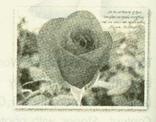
题目列表(包括答案和解析)
| A.Three. | B.Four. | C.Five. | D.Six. |
| A.happiness | B.surprise | C.anger | D.sadness |
| A.She quarreled with her parents every day when she was a little girl. |
| B.Her parents didn’t like her at all. |
| C.She didn’t do well in her study at junior high school. |
| D.She didn’t get on well with her parents when she was in junior high school. |
| A.He didn’t pass the exam. |
| B.He had no good friends. |
| C.He didn’t get ready for the exam. |
| D.He didn’t get on well with his parents and teachers. |
动词填空:用括号内所给动词的适当形式填空,并将答案写在答题卡标有题号的横线处(本大题共8小题,每小题1分,共8分)
1.Many people like to add some sugar while (drink) black tea.
2.Mo Yan, a Chinese writer (honor) with the Nobel Prize last year.
3.— Will you come and pick me up tomorrow morning?
— Yes, I (promise).
4.If you need our her programme list, I’ll be happy (send) you one. Please leave your e-mail address here.
5.—Why did the policeman stop your car?
—I (make) a call at that moment . What a bad day!
6.The 2014 Youth Olympic Games (hold) in Nanjing from August 16th to 28th.
7.I didn’t realize I (leave) the key at home until I got to my car. So I had to go back.
8.— The newspaper says all the museums will be open to public soon. Do you know that?
— Yes. But the local government (not confirm) it yet. Let’s just wait and see.
---- It’s time _____ lunch.
---- OK. Let’s _____.

As we know, there are differences between western culture and Chinese culture. We can see differences when we pay attention to the way words are used. Let’s look at the words about animals and plants. Most expressions in Chinese about the dog, for example, “a homeless dog”, “a mad dog”, “a running dog” and “a dog catching a mouse”, have negative(消极的)meanings. But in western countries, dogs are thought to be honest and good friends of people. In English, people use the dog to describe positive(积极的)actions. For example, “you are a lucky dog” means you are a lucky person. And “every dog has its day” means each person has good 1uck one day. To describe a person’s serious illness, they say “sick as a dog”. The word “dog-tired” means very tired. However, Chinese love cats very much. But in western culture, “cat” is often used to describe a woman who is cruel(冷酷的). There are many other examples of how “cat” is used differently as well.
The rose(玫瑰)is thought of as a symbol of love in both China and some western countries. People think the rose stands for(代表)love, peace, courage and friendship. And the rose is the national flower of England, America and many other countries.
The words about plants and animals are used in positive or negative ways in different cultures. We can learn about many differences in cultures by comparing(比较)how some words are used.
【小题1】The word “dog” in Chinese usually_________.
| A.shows peace | B.stands for friendship |
| C.has a negative meaning | D.has a positive meaning |
| A.each person lives his own way of life |
| B.if one works hard, he is sure to succeed |
| C.everybody in the world is lucky |
| D.everybody has a time in 1ife to be lucky |
| A.a tired person | B.a brave man |
| C.a homeless person | D.an unkind woman |
| A.Words show differences in different cultures. |
| B.Chinese people like dogs better than cats. |
| C.Western people think of cats to be good friends. |
| D.Rose is the national flower of all western countries. |
| A.Negative or Positive. |
| B.Different Countries Have Different Cultures. |
| C.Rose Means the Same in Chinese and English. |
| D.What Dog and Cat Mean in English. |
—Would you like to go swimming with me this afternoon?
—_______, but I have a lot of homework to do.
| A.I’d love to | B.Yes, let’s go | C.No, I won’t | D.It doesn’t matter |
湖北省互联网违法和不良信息举报平台 | 网上有害信息举报专区 | 电信诈骗举报专区 | 涉历史虚无主义有害信息举报专区 | 涉企侵权举报专区
违法和不良信息举报电话:027-86699610 举报邮箱:58377363@163.com